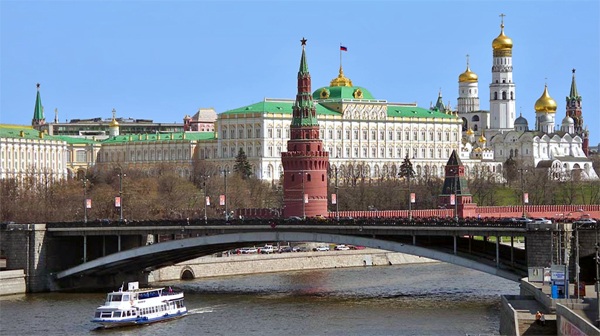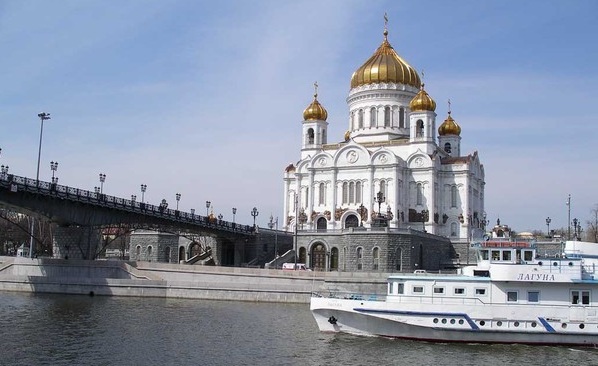Nations’ Health: Systems of Lifelong Physical Education as a Foundation of Public Health
Moscow
Host City – Moscow
Moscow is the capital of the Russian Federation, federal city, the administrative centre of the Central Federal District and the centre of the Moscow region (Moscow does not belong to it.). Moscow is the most populous city of Russia and its subject with 12 380 664 residents (2017), the largest city entirely on the European continent, it belongs to 10 most populated cities. Moscow is the centre of Moscow metropolitan agglomeration.
Moscow is situated on the Moscow river in the center of the East European plain, between the Oka and the Volga rivers. As a subject of the Russian Federation Moscow borders on the Moscow and Kaluga Regions.

Moscow is an important tourist center. Moscow Kremlin, Red Square, The Novodevichiy monastery and the Church of the Ascension in Kolomenskoe are in the UNESCO world heritages list. Moscow is also an important transportation center. There are 6 airports, 9 railway stations, 3 river ports (river communication with the seas of the Atlantic and Arctic Ocean basins). The Moscow Metro has been working since 1935.
Moscow is a world major scientific center represented by scientific research institutions in different areas such as Nuclear power, microelectronics and space activities and others.
The first scientific research began to be carried out at Moscow University in 1755.
In 19th century scientific societies began to appear at the University of Moscow studying history of Russia, medicine, physics, the Russian language and other sciences.
The Rumyantsev Museum was opened to the general public in 1828 in St. Petersburg — a large collection of books, coins, manuscripts and other ethnographic and historical materials, which was transferred to Moscow in 1861, and on its base State Library of the USSR named after V.I. Lenin (since 1992 as the Russian State Library).

In 20th century a network of sectorial research institutions began to be formed in Moscow. All Russian Scientific-Research Institute of Mineral Resources (1904), Central Aerohydrodynamic Institute named after N.E. Zhukovsky (TsAGI) (1918), Karpov Institute of Physical Chemistry (1918), Moscow Technical University of Communications and Informatics (1921), Institute of Atomic Energy named after Kurchatov, Institute of Theoretical and Experimental Physics (1945) and others.
Academic network began to be concentrated in Moscow in the Soviet period. All-Union Academy of Agricultural Sciences named after V.I. Lenin (1929), the USSR Academy of Sciences – Presidium of the USSR Academy of Sciences (it was transferred from Leningrad in 1934), Academy of Medical Sciences of the USSR (1944), Academy of Pedagogical Sciences of the Russian Federation (1943) were opened or transferred to Moscow.
Moscow is one of the most important educational centers of Russia. Since the day of foundation of the first higher education establishment - Slavic Greek Latin Academy there are a lot of educational institutions in Moscow. Moscow State University, one of the oldest and largest universities in Russia was founded on the initiative of Ivan Shuvalov and Mikhail Lomonosov in 1755.
According to the data at the end of 2009 there were 264 higher education establishments including 109 state or municipal ones and 155 private ones in Moscow. The number of students was 1281,1 thousand people. 11 Moscow universities have the status of National research universities.
Moscow has 400 libraries, among them there is the oldest public library of Russia – Scientific Library of Moscow State University and the largest book depository in the country – Russian State Library.
There are a lot of sports facilities in Moscow. Among them there are more than 200 swimming pools, about 40 palaces of sports, more than 30 stadiums for more than 1500 seats, more than 20 indoor ice arenas, 2700 gyms, about 150 Children's and Youth Sports School, Olympic cycle track – the only one in the world within the city limits (Krylatskoye). There are two arenas for racing in Moscow: Central Moscow Hippodrome and Horse-racing complex Bitsa. Most of the sports facilities were rebuilt or reconstructed for XXII Summer Olympic Games in Moscow in 1980 including Luzhniki and Olimpiysky Complexes.
In 1990s most of the large stadiums and sports complexes went through a really tough time in its history and as a rule sports events did not practically take place there, instead commodity markets were organized on these territories, but this practice is a thing of the past now and sports arenas returned their initial functions. Besides facilities themselves providing opportunities to hold events, there are a lot of sports organizations in the city, the most prominent of them are such famous football clubs such as «Dynamo», «Lokomotiv», «Spartak», «Torpedo», «CSKA»; hockey clubs: «Dynamo», «Spartak», «CSKA»; basketball clubs — «Dynamo», «CSKA»; mini-football clubs - «Dynamo», «Dina» «CSKA».
